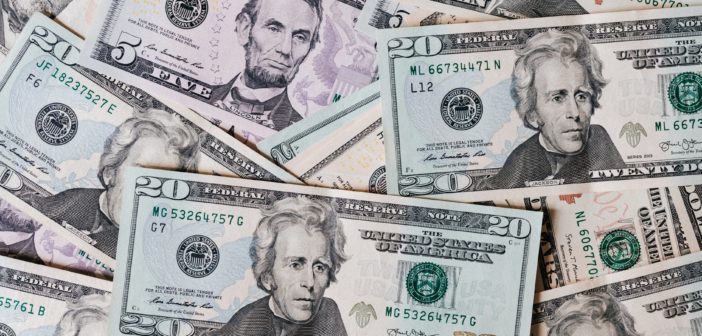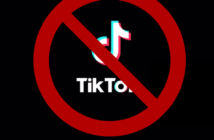By Tayhana Taylor, World News Editor
Effective Sept. 30, 2021, Florida’s minimum wage will increase from $8.56 to $10.00 per hour. This increase in the minimum wage is much more than workers getting paid more; such a drastic change in the economy has implications for employers and employees who work minimum wage.
“An increase in minimum wage usually means an increase in employer costs. To remedy this, employers will often raise prices (and pass these costs to consumers),” said Dr. Moneque Walker-Pickett, a criminal justice professor and associate chair of Saint Leo University’s criminal justice department. “Some threats to unskilled workers include job losses, decreased work hours, and unemployment, which then affects poverty.”
In theory, positive implications of increasing the minimum wage would be to bring more people out of poverty and increase the income of individuals and their households. But this is not always the case.
“The unemployment rate will likely increase because of this change. Businesses will look for substitutes for the higher-waged workers. Investments in replacement technologies or outsourcing work will likely ensue,” said Dr. Zachary Smith, an associate professor of economics and finance at Saint Leo. “Unless these displaced workers retrain themselves and seek new jobs, some increases in unemployment seem almost inevitable.”
Although unemployment can be a negative implication of increasing the minimum wage, it is not the only possible side effect. In some instances, employers may compensate by reducing the number of hours they allow their employees to work each week.
“Unemployment rates should increase, but this can be tough to connect to the data as some employees have their hours cut to more prime time when they are needed, which technically means they are still employed,” said Dr. Ryan Murphy, an associate professor of economics at Saint Leo.
Additionally, many workers who have suffered from the lack of living wages—such as many of the migrant farmworkers in Florida—will still not see any benefits from the raising of the hourly minimum wage. In Florida, there are several migrant farmworkers who get paid differently from the average minimum wage worker.
“The industry of farmworkers is quite unique because it is regulated differently from other industries, so an increase in the minimum wage would not have a positive impact in any way for farmworkers,” said Dr. Randall Woodard, an associate professor of theology at Saint Leo.
Farm Workers like the Immokalee workers, for example, do not get paid an hourly minimum wage rate. “The problem with minimum wage for farmworkers is that they get paid by how many baskets of produce they pick,” said Woodard. “Even if there was to be an increase in the minimum wage, it would not make a difference in pay for farmworkers or any worker in the agricultural industry because they get paid by the load.”
In other industries like fast-food and food retail, it may be an easy fix for bigger companies to prepare for this increase in the minimum wage by investing more in automation. “Businesses are already positioning themselves to handle these adjustments to minimum wage. More and more jobs are being replaced by machines… just look to the new Publix and all the self-check-out lanes. The same can be found at Walmart and McDonald’s,” said Murphy.
The increase in the minimum wage to $10.00 is only one of the first steps of Florida’s trajectory to get the minimum wage to $15.00 per hour.
“The anticipated change, which is an increase in the minimum wage rate to $15, will lead to wage compression. This occurs as a result of setting a new wage floor in the labor market,” said Smith.
Smith further mentions that it is feasible for Florida to reach this goal of $15.00 per hour by 2026, but he poses the question of whether it should reach this goal. “As this wage floor resets, relatively unskilled workers entering the labor force will receive the same wage rates as higher-skilled workers. This change could reduce morale and productivity amongst the group of workers with better skills,” said Smith.
As wages increase, so will the supply of labor, but the demand for labor will decline. “People will be competing for fewer jobs because some employers will not be willing to hire additional employees at the higher wage rate,” said Smith.
Since employers will always do what is best for their businesses, they will seek alternative ways to get a job done rather than hiring the next unit of labor. Smith stated that “If there are more attractive alternatives compared to paying this higher rate, they will deploy capital in a manner that ensures that it is used as productively as possible and this could, in turn, lead to the destruction of jobs through automation.”
Automation has always been a quick solution for employers. Hence, it is important for people to develop unique skills that set them apart. It is also vital that people acquire skills that will still be relevant in the far future and will keep them at an advantage over automated machines.
“Innovation and technology are not bad, but it is how we use them that makes a difference,” said Woodard. “If we do replace some people with automation because of this increase in the minimum wage, non-profit organizations and the government could step in to offer alternative training pathways for people who are being laid off.”
Dr. Rita Ray, an assistant professor of economics, asserts that the United States needs a comprehensive policy to reduce the number of discouraged workers and help them to acquire skills to qualify for the existing jobs. “The non-participation rate amongst prime-age males (25-54 years) without having a college degree has been increasing significantly. One major reason for that is the decline in the demand for middle-skill workers,” said Ray.
Wages are important and should be ethical, but when it comes down to increasing the minimum wage, the underlying question remains, how much should it be increased to?
“I think it is important to raise the minimum wage, but there needs to be a balance in not raising it to the point where it discourages individuals, especially young people, from going to college and making a better life for themselves,” said Dr. Passard Dean, director of graduate studies, chair, and professor in the department of accounting economics and finance.
If the minimum wage becomes too high, young adults may pass on attending college after high school—which is another issue in itself. “The minimum wage should be raised so that those who are in a position where they are not able to attend college can still make a decent living,” said Dean.
Florida is well on its way to making incremental increases in the minimum wage paid to workers, but when making such a consequential change, the present and future implications must be fairly considered.





